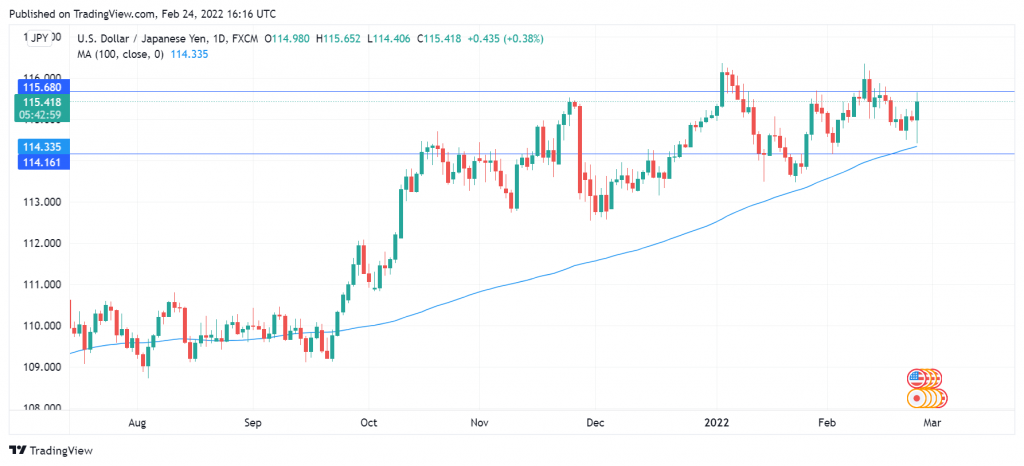Post by: PocketOption on Feb 25, 2022, 02:18 am
Hopes that diplomatic moves could avert a n invasion of e were shattered early Thursday, as launched a full-scale attack. The move was not all that surprising, given the massive n buildup on the border with e during the past few weeks. Still, the fighting in the heart of Europe has weighed heavily on the financial markets, as risk appetite has fallen sharply. The safe-haven Japanese yen has gained ground and is trading at 3-week highs.
Western leaders have strongly condemned the n military operation, with NATO’s secretary-general calling it ‘a brutal act of war’. There will clearly be more sanctions headed Moscow’s way, but it’s doubtful that this will dissuade n President Putin from his aim to force e back into the n orbit. Western Europe is dependent on n natural gas and with the US showing no appetite for military intervention, things are looking extremely bleak for pro-Western ian President Zelensky.
Japan’s CPI expected to rise
On the economic calendar, Japan releases Tokyo Core CPI for February later today. CPI is expected to rise to 0.4%, up from 0.2% in January. Earlier in the week, BoJ Core CPI, the central bank's preferred inflation gauge, rose 0.8%, lower than the 0.9% gain beforehand. Japan’s inflation has been moving higher, although nowhere near the clip we’ve seen in the US and the UK. Still, with the n invasion in e likely to push energy prices even higher, inflation in Japan should continue on an upswing.
Brent crude pushed above USD 100 for the first time since 2014, as the e conflict threatens to disrupt oil deliveries from , a major producer. The timing couldn’t be worse for the central banks of the major economies, which are struggling to contain red-hot inflation. The Fed is still expected to hike rates in March, but it may have to put a pause on additional hikes if economic conditions deteriorate.
.
USD/JPY Technical
- The 100-DMA at 114.35 is providing support. Close by, there is support at 114.16
- 115.68 is under pressure as resistance. Above, there is resistance at 116.30
Source: Yen rises as launches invasion (https://www.marketpulse.com/20220224/japanese-yen-rises--launches-invasion/)
